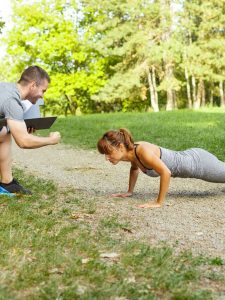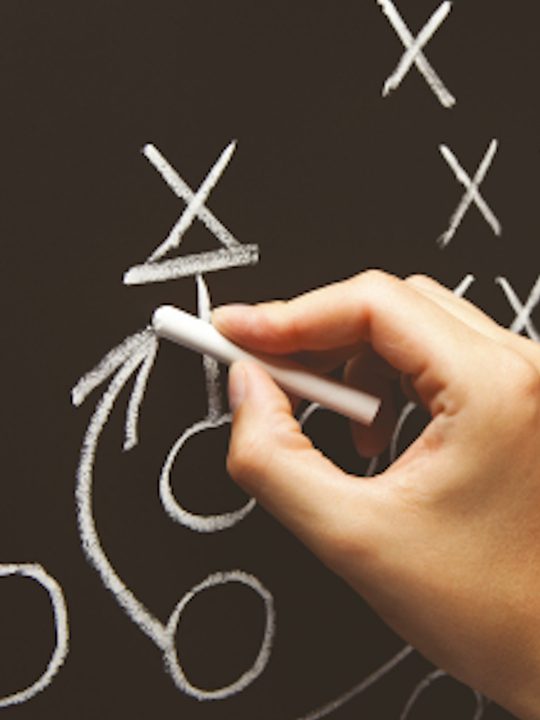
Here at UK Distance Learning & Publishing, we have invested a lot of time in developing our distance learning Fitness, Health and Anatomy courses, and we’re determined to make sure that it continues to meet the needs of our current students and prospective future students.
We have a range of popular CPD focused courses (Continuing Professional Development), like Sports Coaching, or Sports Management. These allow people who already understand the basics of fitness training to refine the focus of their learning onto a specific area, helping them to steer the course of their career in a particular direction.
 In the past, physical fitness and sport were seen as incompatible with intellectual examination and reflection, but this is no longer the case. If you want to see an example of sports science at work then look to the Olympics. If you think that Bradley Wiggins and Jason Kenny got that good at cycling just by, well, cycling, then you’re wrong. They have a team behind them that considers every detail, down to the amount of chevrons on their Lycra suits and plastic helmets. The bikes they ride are the product of hundreds of thousands of pounds of research and development, and their training schedules are designed by a committee of professionals with more degrees than most thermometers.
In the past, physical fitness and sport were seen as incompatible with intellectual examination and reflection, but this is no longer the case. If you want to see an example of sports science at work then look to the Olympics. If you think that Bradley Wiggins and Jason Kenny got that good at cycling just by, well, cycling, then you’re wrong. They have a team behind them that considers every detail, down to the amount of chevrons on their Lycra suits and plastic helmets. The bikes they ride are the product of hundreds of thousands of pounds of research and development, and their training schedules are designed by a committee of professionals with more degrees than most thermometers.
But it’s not only athletes’ exercise programmes that are monitored these days. Not so very long ago it was quite common for footballers to go for a few pints and a fish supper after the game. And we’re not talking about the players for the Dog and Duck, or Dynamo Kebab, but the guys playing for Manchester United, Arsenal, and even the mighty Carlisle United (in fact, the Blues may still indulge in the odd shandy now again). For the most part, though, a modern athlete would be astonished that a professional could get away with eating whatever he/she fancied of a weekend.
So much of modern sports science focuses on the impact of nutrition on the body, and that’s we have devoted such a large portion of our course portfolio onto courses that focus specifically on this area, with courses like Diet & Nutrition Level 2 and Nutrition Consultant proving particularly popular. Gillian McKeith may have done a bit of damage to the reputation of nutritionists with her rather suspect ‘fecal analysis’, which was for the most part, ahem, bullshit, but the genuine science of nutrition is absolutely vital to understanding how our bodies can develop.
A good example from recent times about how nutrition can have an impact on physical performance is Novak Djokovic. A couple of years ago he changed his diet to become gluten-free. He realised that whilst he was not a coeliac, or even particularly ‘wheat intolerant’, that nevertheless he experienced a pronounced uplift in his performance when he cut gluten from his diet. The heaviness of bread and pasta had been making him feel sluggish, lethargic and bloated, and by cutting them he was able to perform with greater mobility, and with more enthusiasm, particularly in the mornings.
So, if you want to learn more about the ways in which you can use your brain to improve the performance and (let’s face it) the appearance of your body, then a distance learning or online course in Fitness, Health or Nutrition is the way to go. If you’ve got any question, please drop UK Distance Learning & Publishing an email, or give us a call.




